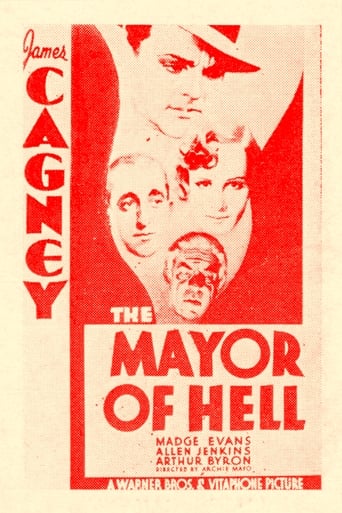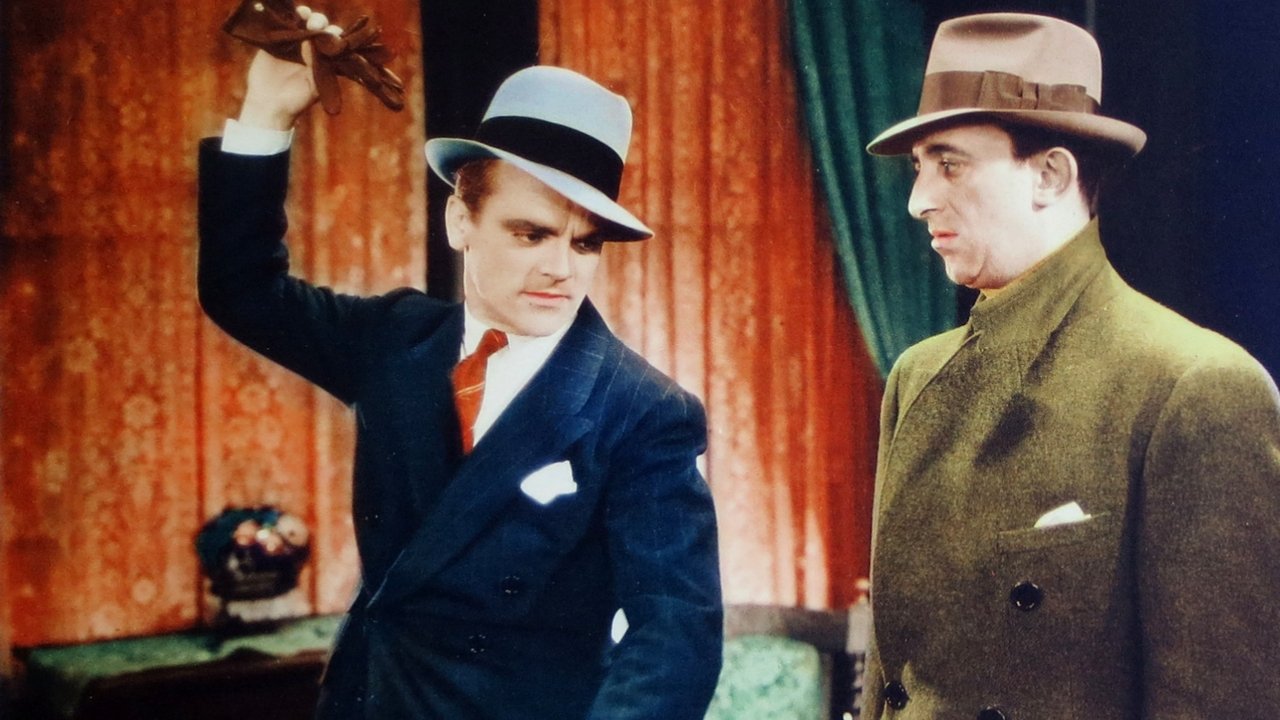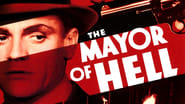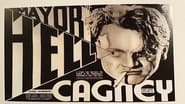Edgar Allan Pooh
. . . and other times the bacon gets to eat you. That's Warner Bros.' moral of its MAYOR OF HELL story. Government grafter (sorry for using an oxymoron) Reform School Commissioner Thompson initially is the one eating all the decent bacon at Peakstown while the juvenile delinquents incarcerated there are being fed the slop rejected by the fatted pigs (with the taxpayers being billed for caviar, as Thompson himself pockets the difference with the help of his crooked auditor henchman). MAYOR OF HELL is one of the most influential films in American history, as most subsequent public "servants" (including many if not all of the top administrators of the 100 largest U.S. urban school districts) adopted Thompson's "business model." Thompson's personal Principles of Microeconomics have been expanded to include America's taxpayer-funded for-profit Charter School Movement, as they've been applied on a Macroeconomics scale in the head-long rush to "Privatize" ALL government functions. Now that greedy corporations largely owned and run by One Per Center thieves have replaced the cadre of friendly "lunch ladies" of Yesteryear, kids are served the scrapings from the bottom of the lowest bidders' heaps. All the sprawling state psychiatric hospitals of the past are long gone, with their former patients currently being force-fed maggot-infested fare by "private contractors" along side penitentiary gangsters. But MAYOR OF HELL also predicts what Warner thinks the future will look like for the fat cat Thompsons controlling today's America. One night we 99 Per Centers will be pushed too far, as are the boys here, who run Thompson down with flaming torches and literally feed his corpse to the source of all his ill-gotten bacon.
weezeralfalfa
Please note that this film, which purports to expose common abuses and failings of juvenile reform schools of the times(1933), was released just the year after the damning "I am a Fugitive from a Chain Gang", staring Paul Muni, the purpose of which was to expose common abuses and failings of US adult justice systems. Both were sponsored by Warners. Whereas Muni thereafter was mostly assigned to portray non-American historical, scientific, literary or political rebels, Cagney and Eddie Robinson mostly specialized in portraying characters relating to American crime, especially gangsters: a popular subject in the '30s.In this film, Cagney is assigned to portray a cocky gangster leader who, quite accidentally, transforms himself into a revolutionary reformer of reform schools. Thus, it's a story about reform taking place simultaneously at 3 levels: the delinquent boys, Cagney(as Patsy) himself, and the basic nature of the reform school. The latter is catalyzed by 3 main factors: 1) Patsy's political corruption-related plum appointment as Deputy Commissioner, which places him over the corrupt and punitive supervisor of the school(Dudley Diggs, as Thompson) 2)Patsy's introductory visit to the school, when he becomes aware of some of the unsavory conditions and policies 3)Patsy's introduction to the reform-advocating school nurse, and his accidental discovery of two of her books: "Fundamental Principles of the Juvenile Republic", and "Self Governing of Juvenile Correction" - radical -sounding titles. Initially, largely to impress Dorothy, whom he soon takes a shine to, he very unexpectedly agrees to try to institute the radical policies advocated by Dorothy. Essentially, the school will be run by the boys, with the superintendent(Thompson) mostly a figurehead, and Patsy and Dorothy present to enforce basic policies and make needed interventions. Among other things, this means the boys will now get decent food, as Thompson cannot siphon off much of the food budget for his own pocket. Patsy and Dorothy essentially hand pick the most incorrigible of the boys: Jimmy Smith(Frankie Darro)as mayor, and his chief rival as the Chief of Police. Court is held for infractions of the rules.This new system seems to be working well, and Dorothy is responding to Patsy's romantic overtures, despite their very different backgrounds. However, Patsy is called away to tend to some gangster 'business', and ends up accidentally shooting a rival, in a tussle. Patsy decides he has to go into hiding until it's determined if his victim will live. This gives Thompson the opportunity too reestablish his old way of running the school, firing the objecting Dorothy, who goes to tell Patsy what is happening. Thompson eventually makes a big mistake in sentencing a boy with a bad cough to a stint in 'the cold room', for not revealing the identity of the other boys involved in a food storage room break-in. The boy dies, presumably of pneumonia, precipitating the whole body of boys into a riot frenzy. They overpower the guards and cut the phone lines, charging the shaking Thompson with murder. Fearing a lynching or lethal beating, he crashes through the window and climbs up on the roof of the school barn, which the boys set ablaze. Thompson has to jump to the ground to avoid being roasted, and dies in the fall. Patsy and Dorothy now arrive, and the aroused boys initially want to beat up Patsy, as being a traitor, until Dorothy is able to explain his situation, and he is accepted back as their new superintendent: a happy ending, after a very scary scene.The film makes the point that there were some relevant people in the justice system and the reform schools, who had the ultimate good of the boys at heart., while others were merely vindictive, exploitive and not interested in trying to reform them, assuming that they were inherently criminal. Historically, this reflected reality, as documented in the book "Abominable Firebug", for example. Since the late 19th century, there had existed 2 basic models for reform schools: 'open' and 'closed'. The school in this film clearly began as an extreme version of the 'closed' type, whereas 'the juvenile republic' model was, in some ways, an extreme version of the 'open. type, which typically dispensed with fences and guards, with the boys spending part of the day in academic studies, and part in vocational training or working at various jobs in or outside of the school.Understandably, the film fails to adequately dramatize the common rivalry among the boys, with the stronger, older, and more aggressive ones tending to abuse(sometimes including sexually) the weaker, younger, and less aggressive ones. Also, as emphasized in the title of the remake: "Crime School", the less incorrigible boys tended to pick up criminal techniques and contacts from the more incorrigible boys.In contrast to many reviewers, I didn't find Frankie Darro, nor any of the other boys, especially charismatic, nor did I find Dudley Diggs exceptional in his thankless role as Thompson. Cagney and Madge Evans(as Dorothy) shine brightly as the stars and heroes. The judicial authorities clearly gave the boys a big break in agreeing that Thompson was guilty of second degree murder, and thus the boy's rioting and vigilante action was justified. Of course, we don't find out how the boys turn out as adults. Despite Patsy's and Dorothy's efforts, Darro's Jimmy still comes across to me as a thuggish adult gangster in-the-making. Social environment isn't everything.The early scene where the parents are defending their son before the judge is interesting. As is historically true, most of the boys were from poor, often immigrant, families, often with no father or a cruel, imprisoned or drunkard father, or were orphans or with foster parents.
utgard14
Racketeer James Cagney takes over a reform school that's being run like a prison. With help from pretty nurse Madge Evans, he turns the place around and helps the boys get back on the right track. But the scummy guy that used to run the school is determined to destroy all the good work they've done, no matter what harm it does to the kids.Intense, gritty drama that tackles the issue of juvenile crime and how to deal with it. Strong writing with some good characters. Cagney's excellent in one of his best and probably most underrated films. The kid actors are all terrific and believable. Dudley Digges is a particularly evil villain. Backed up by a typically solid WB stable of supporting actors. Jaw-dropping climax is one of the best finishes to any movie of this decade. Remade as Crime School, with Humphrey Bogart and the Dead End Kids. That one's not bad but it's not nearly as powerful as this one.
theowinthrop
Remember - before there was Sidney, there was Dudley.Dudley Digges is barely recalled today - because his heyday as a fixture in sound movies was the late 1920s and through the 1930s. Except for one major performance: the ship's good natured, if tipsy doctor in the 1935 MUTINY ON THE BOUNTY, most of his films are barely revived. More's the pity because he was a wonderful actor. In 1931 he played Casper Gutman (the original actor to play that villain) opposite Ricardo Cortez's Sam Spade in the first THE MALTESE FALCON. Similarly, about the same time, he played the recording angel in Leslie Howard's version of OUTWARD BOUND - the same role that Sidney Greenstreet tackled in BETWEEN TWO WORLDS a decade later.Digges could be likable and lovable (that ship's doctor again), or detestable (in CHINA SEAS, as the judgmental First Mate sneering at poor Lewis Stone but then proving he's as big a coward in a moment of crisis). He held his own against Paul Robeson in THE EMPEROR JONES. He is the Chinese freedom fighter working with Gary Cooper in THE GENERAL DIED AT DAWN. Digges could do anything. Here, he is Mr. Thompson, the hypocritical and thieving warden of a reform school that Frankie Darro and his friends are sent to for committing a robbery and injuring a Greek-American store owner (it is the latest incident for most of them). Digges is as bad here as in CHINA SEAS, but it is a close thing to totally dislike him. He's able to somehow transcend his roles...more later about that.Darro has a gang of urban delinquents (including a Jewish boy and "Farina" from "OUR GANG"). As pointed out in another review, it is a prototype of the Bowery Boys. We see them shake down car owners to pay them to "watch and protect" their autos. When one guy won't do it, they calmly wreck his car. The snatch and grab robbery at the store of the Greek-American is also rather graphically shown - his skull getting fractured when pushed. The boys are rounded up and brought before stern but decent judge Arthur Byron, who realizes that he can't leave the kids with their parents: the parents are unable to watch them, or are incompetent. Unfortunately there are three racial stereotypes in this sequence: a Jewish father who is more concerned with his business than with his son, Farina's stereotype "Yassum" father, and the an Italian father whose willingness to cooperate gets his son out of going to the reform school.Once there the boys find the regime oppressive. Occasionally one of the guards or the nurse (Madge Evans) tries to speak up for them. But Digges has no time for coddling. His is a regime determined to break the boys so they behave themselves. Unfortunately, Digges and his bookkeeper partner are greedy. They have been serving inferior food to the boys and pocketing the profit. One day a new official comes from the state to look at the reform school. It's Jimmy Cagney, who is a hack ward heeler whose gang got the vote out for Edward Maxwell. As a reward (he could not get the Park Commissioner post) Cagney was made an Assistant school inspector. He is supported by his hanger-on pal and factotum Allan Jenkins (in his first Warner Brother film). The irony is that if Digges were a bit more careful, Cagney would probably have let him continue running things. But Cagney arrives to see Darro brought to Digges for fighting. The Warden and Darrow have had problems about respect earlier, and Digges now intends to punish Darro who flees - but get seriously injured by Digges' barbed wire fences and his free use of a whip. Cagney stops Digges and lets Evans treat Darro's injuries. And she explains the reality of the situation to Cagney, and her own idea of real reformatory reform of the boys by building up trust in them with responsibility.The film follows this to the end, showing that Cagney and Evans are on the right path, turning the reformatory as a "republic" for the boys to run properly. This leads to conflict with Digges, whose profiteering is reduced as he is no longer getting supplies. But the scheme is derailed when Cagney himself finds he may be in serious trouble with the law. Digges sees his opportunity and fully takes it. But then he goes too far...far more than he ever bargained for.The 1930s had many films showing kids taking steps to right wrongs and change things. Darro appeared in such as WILD BOYS OF THE ROAD. Cecil B. De Mille did THIS DAY AND AGE, where the kids teach a lesson to a gangster played by Charles Bickford that scares the hell out of him. So it went in the 1930s. THE MAYOR OF HELL reaches a similar intensity of vengeance and juvenile justice seeking. But that's the one problem of the film. Digges' character is a knave and hypocrite, so we never really cheer for him, yet if he wasn't a thief we might go along with his view (even if it is counter-productive). The scenes at the start of Darro and his gang preying on people actually make the harshness Digges would follow seem fairly understandable (even if his thieving ways are not). Also he has one moment when he's justifiably angry at Cagney - at that point in hiding from his own clash with the law - giving orders over a phone from long distance to a befuddled Digges. When Digges learns what's actually happened he is justifiably furious at Cagney lecturing him about proper behavior. It is the closest thing to making Mr. Thompson sympathetic in this fine movie.



 AD
AD





